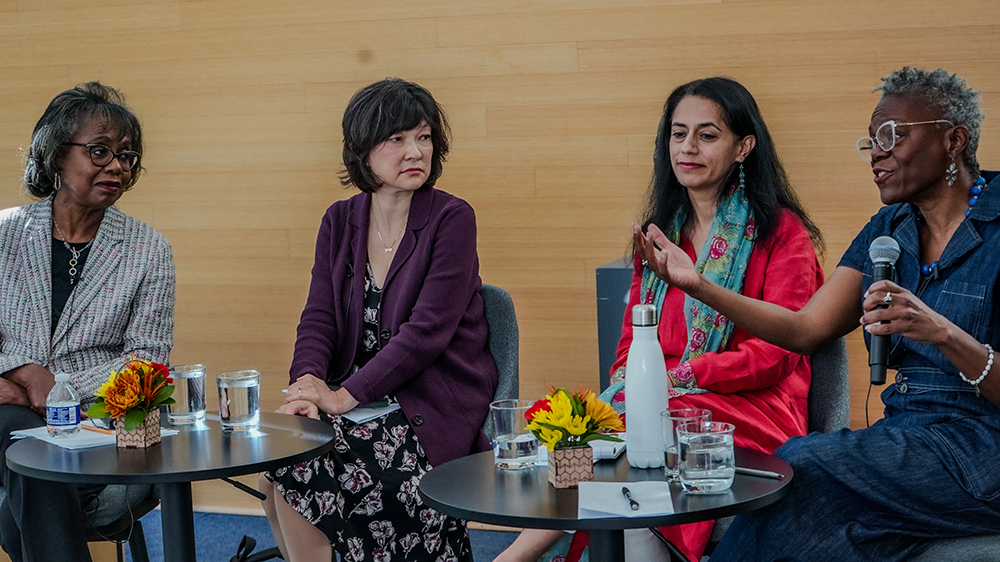
On Wednesday, October 9, the Heller School hosted a panel discussion about the upcoming U.S. Presidential election featuring four scholars within the Brandeis community. Speakers included Faith Smith, ChaeRan Freeze, Anita Hill, and Harleen Singh. The event was cosponsored by the Department of African and African American Studies, the Department of Women’s, Gender and Sexuality Studies, and the Women’s Studies Research Center at Brandeis.
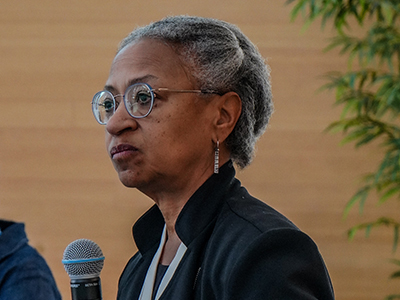
“Today we have the extraordinary opportunity to continue in that wonderful tradition established by Brandeis 75 years ago, and Heller 65 years ago, which is to be in community to debate topics that are essential to our life course, and the life course of those whom we champion through our social justice work at Brandeis and Heller,” said moderator Maria Madison, Interim Dean of Heller, in introducing the event. After Dean Madison’s opening remarks, each panelist had the opportunity to share their thoughts on the 2024 election and the social identities of both candidates through the lenses of race, diaspora/immigration, gender, and socioeconomic class.
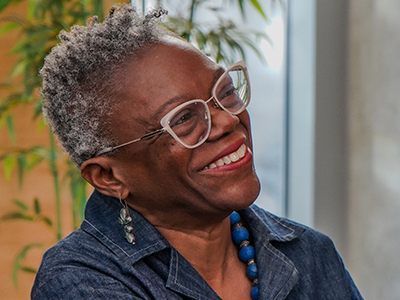
Professor Faith Smith, Department Chair of the African and African American Studies department and Professor of English, Women’s, Gender, and Sexuality Studies; Latin American, Caribbean, and Latinx Studies; and the CAST minor, spoke first about migrants and how they are perceived and often placed at a disadvantage both politically and socially. “It is important to think about the ways in which political candidates have attempted to malign a specific community and national origin,” said Smith, noting the proliferation of media that can amplify misinformation. “As political actors, we have to listen carefully. As neighbors, we have to question why and when we feel prosperous or safe, or neither of those things, and at whose expense.”
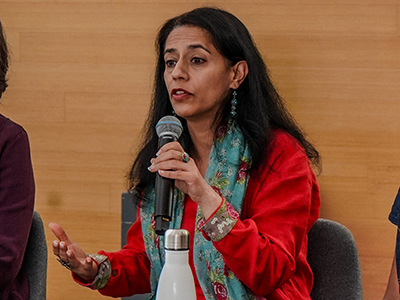
Harleen Singh, Senior Associate Provost for Academic and Strategic Initiatives; Director of the Women’s Studies Research Center; and Associate Professor of Literature, South Asian Studies, and Women’s, Gender, and Sexuality Studies, discussed the nature of democracy, noting that it is impossible to find a candidate who is representative of everyone, especially minorities, but that this is all the more reason to participate in the political process. As citizens exercising our right to vote, she said, “the real question at this time is not about the perfect candidate, but about restoring our faith in the democratic process, in each other, and in community. We can only do that by electing someone who is not intent on driving us further away from each other.”
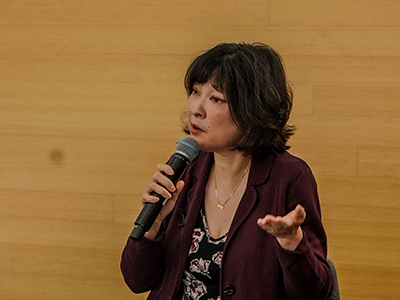
ChaeRan Freeze, Frances and Max Elkon Chair in Modern Jewish History in the Department of Near Eastern and Judaic Studies, focused her discussion on the concept of intimacy in the current political moment and the expectations that have been placed on Kamala Harris due to her race and gender. For marginalized communities in particular, Freeze stated that this cultivated intimacy with a candidate has “sparked hopes that Harris’s political priorities will align with our own lives,” and that by electing her, we are opening up possibilities for evolution and change.
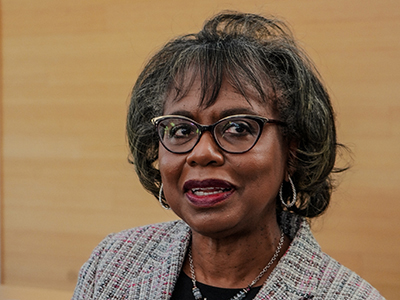
Anita Hill, University Professor of Social Policy, Law, and Women’s, Gender and Sexuality Studies, and David R. Pokross Professor of Law and Social Policy, discussed the online rhetoric about Kamala Harris through the lens of gender bias. In questioning how to move beyond negative and hateful speech, Hill asked, “How do we have conversations about politically and socially explosive issues without relegating them to the demeaning constructions that we place on people because of their identity?” She noted that there are structures in place that make it hard for us to get excited about a Black Asian woman in leadership, and asked the audience to consider the significance of electing someone of a different background as President of the United States.
After the four panelists spoke, Madison emphasized that the topics being explored go beyond the election and address how we can coexist as a society despite all our differences. She then opened up the Q&A portion of the event, during which the panelists addressed topics ranging from the impact of having a woman of color take office, the need to keep elected officials accountable for their agendas, and how to encourage responsible civic engagement.
At the close of the panel discussion, Madison encouraged attendees to “carry forward the homework that has just been assigned to each of us.”
